- Home
- Richard Kadrey
Butcher Bird
Butcher Bird Read online
PRAISE FOR BUTCHER BIRD AND RICHARD KADREY
“If [Butcher Bird] had been rendered in oil or acrylic, it would be kicking world-class lowbrow ass in multi-page spreads in Juxtapoz or on the walls of La Luz de Jesus. Go for it. The man is mad, in every best way.” —New York Times bestselling author William Gibson
“Mr. Kadrey’s invention never flags. He always has another joke up his sleeve. Even if the joke is on us and our ability to drag the Heavenly Hosts themselves down to street level, and then corrupt them.” —Wall Street Journal
“A master of manic, rapid-fire storytelling, hilarious wisecracks, and relentless supernatural lunacy.” —Barnes & Noble
“Shares some themes with its later cousin [Sandman Slim], but the shape and the tone of this book are completely different. . . . An original work with a unique voice. Butcher Bird is an engrossing and slightly unsettling reading experience. . . . Go find it. Read it. You’ll thank me.” —FantasyLiterature.com
“This is the book Sandman Slim should have been. . . . Some of the most creative writing I’ve seen in a very long time. There are a lot of ideas crammed into the book, a lot of stunningly novel and breathtakingly clever ideas.” —Bookish
“Buffy and Angel fans are likely to enjoy Kadrey’s offbeat supernatural romp, which blends demonic evil and quirky humor. . . . Kadrey juxtaposes gore and brash insouciance in the face of apocalyptic evil.” —Publishers Weekly
“I’ve said on more than one occasion that I consider Sandman Slim a kind of sideways sequel to Butcher Bird. . . . It has many of the same themes: the notions of Heaven and Hell, the positions of Lucifer versus God, mortals’ relationship to the afterlife and to other powers that are beyond them.” —Locus
“In Butcher Bird I read many of the themes which make the Sandman Slim series so interesting. . . Everything a good quest story should have. . . . Reading Butcher Bird while in the midst of the Sandman Slim series gave me a richer experience, because I already knew what Kadrey was up to.” —Lunisea
“Richard Kadrey is a genius.” —New York Times bestselling author Holly Black
“Kadrey really is the anti-Twilight. Raw, real, funny, furious, all full of piss and hemoglobin.”—FEARnet
“Kadrey’s prose is raw and gutter-tough, Raymond Chandler meets Lux Interior at the Whisky a Go Go at the end of days.” —Austin Chronicle
“Kadrey’s a fascinating writer and no matter how vicious Sandman Slim gets, we’re rooting for him to win.” —New York Times bestselling author Charlaine Harris
“Kadrey makes magic, humor, and crime mix effortlessly.” —Seattle Book Review
BOOKS BY RICHARD KADREY
Novels
Metrophage
Dead Set
Butcher Bird
Kamikaze L’Amour
ACCELERATE
Sandman Slim Series
Sandman Slim
Kill the Dead
Aloha from Hell
Devil Said Bang
Kill City Blues
The Getaway God
Killing Pretty
The Perdition Score
The Kill Society
Coop Series
The Everything Box
The Wrong Dead Guy
Butcher Bird © 2007 by Richard Kadrey
Originally published online in a different form as Blind Shrike, on The Infinite Matrix, April 2005. This edition of Butcher Bird © 2017 by Night Shade Books.
All Rights Reserved. No part of this book may be reproduced in any manner without the express written consent of the publisher, except in the case of brief excerpts in critical reviews or articles. All inquiries should be addressed to Start Publishing LLC, 101 Hudson Street, 37th Floor, Jersey City, NJ 07302.
Night Shade Books is an imprint of Start Publishing LLC.
Visit our website at www.nightshadebooks.com.
10 9 8 7 6 5 4 3 2 1
Library of Congress Cataloging-in-Publication Data is available on file.
ISBN: 978-1-59780-924-5
Ebook ISBN: 978-1-59780-643-5
Previous Ebook ISBN: 978-1-59780-404-2
Previous edition ISBN: 978-1-59780-086-0
Cover artwork by Dan dos Santos
Interior layout and design by Jeremy Lassen
Jacket design by Claudia Noble
Printed in the United States of America
For N, with love
TABLE OF CONTENTS
Introduction: The Goddamn Saga of Butcher Bird, the Book That Was Supposed to Die
Butcher Bird
“Bull Riding”—A Butcher Bird Short Story
THE GODDAMN SAGA OF BUTCHER BIRD, THE BOOK THAT WAS SUPPOSED TO DIE
When I wrote Butcher Bird, I couldn’t sell it to anyone for any price. “Urban fantasy” didn’t exist as a publishing category at the time. A couple of editors were interested in it, but were overruled by marketing departments that didn’t know what the hell to do with it. Basically, Butcher Bird was dead before it even got started.
It’s probably no surprise that I was depressed to have a book on my hands that no one wanted. It was doubly depressing because Butcher Bird meant a lot to me. I started writing it without an outline and only a few notes, something I seldom do. It was an experiment to see if I could get a book moving without overthinking it or comparing it to other books. Which is the second reason the failure of Butcher Bird was so hard to take: it was the first book that I tried write like myself, with my own voice and style. My previous novels spent a lot of time imitating other writers, but Butcher Bird was all mine. And, apparently, that was a very bad idea.
On the other hand, I accomplished what I set out to do. I stripped down my previous style—which could get long-winded and too clever for its own good—to the bare bones. And I wrote a goddamn fantasy novel, something I never thought I’d do. For most of my life fantasy equaled bloated Tolkien rip-offs with wenches and florid prose that made my teeth hurt. It wasn’t until I ran across some of Neil Gaiman and Roger Zelazny’s work that I saw the interesting things you could do with fantasy. Since I wanted to break with my old prose style, it made equal sense to take a break from writing science fiction, which was the only genre I’d tried and cared about at that point. The result was Butcher Bird. And no one wanted the damn thing.
The fact that no one wanted the book did more than depress me. It made me question whether I should continue writing books. Maybe I should stick to stories. A book could take a year and a first draft of a story just a few days. And even when a story was rejected, it wasn’t the same kick in the head as a DOA book. But I didn’t love stories back then. I loved the crazy depth and width that a novel gave you. On the other hand, stories didn’t require that many hours to write. Frankly, I was going broke writing books. But with nothing else better to do with it, I tossed Butcher Bird in my filing cabinet and wondered if my still-very-shaky career was over. (I thought the same thing after my second novel, Kamikaze L’Amour, was murdered by critics and sold about six copies. Butcher Bird was supposed to be my comeback.)
After forgetting about Butcher Bird for about six months, I ran across it again while going through my files. It started bugging me all over again. What to do with a finished book that no publisher would touch? I did the only logical thing: I gave it away.
It was still called Blind Shrike back then, but I put it online for anyone who wanted to download and read it. Why not? I think it’s always better to have your work out in the world instead of turning moldy in a drawer.
And then I forgot about it.
I was still writing, but at a slower pace than before and with no thought of writing a book then or in the near future. But I thought a lot. Did I have a career as a writer? Well, yes, but not in fiction. For years I freelanced, writing copy fo
r websites. I wrote some reviews and a lot of ad copy for online marketing companies (Writing for Snapple was the best. Writing for a muffler company was the worst.). One bright spot was that I had the opportunity to write ACCELERATE, a comic with the Pander Brothers. It was a failure too. I was pretty much death incarnate when it came to killing fiction projects back then.
Then, out of the blue, I received an email from Night Shade Books. For reasons I still can’t fathom, they wanted Blind Shrike. So, I rewrote it, we changed the title to Butcher Bird, and they published it. The book got decent reviews and even sold pretty well. Well enough to make me think that maybe I could give this book thing a shot again sometime down the road. In the meantime, I had an excuse to start writing fiction again.
Butcher Bird is a quest novel, which makes it my story too. Spyder Lee gains a lot of experience and some power, though he’s not sure how to use it. He needed practice and so did I. I still do. No matter how much I write, there’s always something new to learn. That’s one of the reason I like it so much. In short, Butcher Bird changed my life and my ability to work. I’ll always be grateful to Night Shade for that.
If there’s anything to be learned from what I went through I think it’s this: move forward. Keep working. Take chances. I don’t know where he got it, but I once heard the comic Dana Gould say, “Things come from things.” He’s exactly right. I wrote a book that no one wanted, but that I wanted to write. Then I gave it away and after a while, someone did want it. Yes, there was a lot of luck in that. Luck is part of any career and anyone who tells you otherwise is lying to themselves or trying to sell you something.
I hope you like this incarnation of Butcher Bird. The changes are minuscule, but they meant a lot to me. And I hope you enjoy hearing from Spyder and Lulu again in “Bull Riding”, the new story included in the book. It was a lot of fun checking in with them to see where they were and how they were doing.
I’m also grateful to all the readers who bought Butcher Bird and have supported it all these years. I want to say thanks to each and every one of you.
—Richard Kadrey, San Francisco, 2017
“This whole world’s wild at heart and weird on top.”
— Barry Gifford, Wild at Heart
ONE
AUTO-DA-FÉ
“They say that when your head gets chopped off, it can still see and hear for a few seconds, so I’ll have to go with beheading,” said Spyder Lee to Lulu Garou.
Spyder Lee was drinking shots of Patrón Añejo tequila with Lulu, his business partner, at the Bardo Lounge just off Market Street in San Francisco.
Lulu looked into her empty glass and thought for some time, took a drag off her Marlboro Light and winked at the woman tending bar. “Being beaten to death,” said Lulu. “Badly. I don’t mean like with a baseball bat or rebar so you’re out cold, but something small.” She crushed out her Marlboro in the ashtray the bartender slid in front of her. “An eight ball in a sweat sock. That’d give your killer a good workout.”
“Not if the guy hit you in the head right off,” said Spyder.
“My mama was pretty free with her hands. I’m a faster ducker,” Lulu replied. She grinned. Spyder could tell she was unimpressed with his argument.
“Burning at the stake,” he said.
“Drawn and quartered,” Lulu countered.
Rubi, the bartender, took their empty glasses away. “Exactly what are you two rattling about?”
“Worst ways to die,” said Spyder. “Being covered in honey and staked out on a red ant hill.”
“Dying of thirst. Like right now,” said Lulu.
Rubi slid her hand across the bar and took hold of Lulu’s left pinkie. “You parched, baby?”
“I’m drier than Divine’s cunt.”
“Divine was a dude,” said Spyder.
“Exactly.”
Rubi leaned forward and kissed Lulu’s pinkie. “I’ll get you both another round. On me.” As she left to make their drinks, Lulu called after her, “That ain’t all that’s gonna be on you tonight.” Rubi stuck her tongue out at Lulu.
“Being crucified. That’s supposed to be horrible,” said Spyder.
“You’re only saying that ’cause that’s how they talk about it in movies. You ever known anyone who was crucified? Or even heard of one? Hell no. Maybe being crucified is great. Maybe it’s a fucking hoot. Maybe it’s a blow job and ice cream on your birthday.” Lulu took out another Marlboro Light and lit it with a pink fur Zippo. “Know what would really suck? Being force fed a bucket full of black widows.”
Spyder made a face, half frown and half smile. “Jesus, girl,” he said. “You’re upping the ante on me.”
It was the end of another day at the tattoo studio and piercing parlor Spyder and Lulu ran together. Spyder did the ink while Lulu handled the metal. It was a pleasant business. It let them both pretend to be artists while making money and getting a lot of tail on the side. Rubi, for instance, had been one of Lulu’s earliest and most regular customers.
“She’s got about five pounds of me on her at all times,” Lulu liked to tell friends.
Rubi brought back their drinks and set them on the bar. “What time you getting off tonight?” asked Lulu.
“Early,” said Rubi. “’Bout an hour.”
“Sweet.”
“Being eaten alive, Night of the Living Dead-style,” said Spyder.
Lulu turned to him. “You mind? We’re having a moment here.”
“Wait, better than that,” Spyder went on. “Being starved to death, but given topical anesthetic and surgical equipment, so the only way you could stay alive’d be to amputate your own limbs and eat them.”
Rubi said, “You two ought to get married. Move into the Bates Motel.” She went down the bar to serve other customers.
“Now you ruined our surprise,” Spyder called after her.
Lulu took a long pull on her tequila. “Flayed alive and drowned in pickle brine.”
Spyder looked at his hands. The back of one was covered in an intricate black tribal snake pattern while the other hand sported a cartoon red sacred heart. MANS RUIN was tattooed across the knuckles of both hands. He’d gotten the letters while doing a year in reform school for car theft. They were bullshit tats. Kid stuff. But they marked a period of his life, so he never bothered to have them lasered off. From his neck to the tops of his feet, Spyder Lee was an explosion of images and pigments. He’d never felt normal until he’d been tattooed for the first time. The ink felt like some kind of magic armor. His tattoos, even the stupid ones, made him feel bulletproof.
He was one of those lanky Texas boys you see working on cars in oil-stained driveways, a cooler full of Coors, his only concession to the summer heat. A perpetually messy mop of black hair and long arms covered in grease working on the transmission of a vintage Mustang of questionable ownership.
“Split open, your organs torn out with hooks and replaced with red hot coals,” he said.
Lulu leaned in close. “Strapped to the front of a burning boat and driven through a mile and a half of electrified razorwire in a Tabasco sauce hurricane.”
They both broke up in drunken laughter, spitting and slamming their hands on the bar.
“You’re both wrong,” said a woman sitting to Spyder’s right. He and Lulu turned to look at the woman. She was small, with fine features and the smooth grace of a dancer. The woman was drinking red wine and wearing sunglasses. In her right hand she held a white cane, the sort used by the blind.
Lulu called over Spyder’s shoulder, “Okay Ray Charles, what’s the worst way to die?”
The woman finished her wine and stood up. “To be betrayed by the one you love.”
She turned on her heels and, swinging her cane in small arcs in front of her, pushed her way through the crowd and out of the bar.
Spyder watched the door as it closed behind the woman. Lulu took a drag off her Marlboro. “Stupid bitch,” she said, and dropped the butt into the woman’s empty wine glass.
THE GREAT DIVIDE
The Earth was born in a furnace. When the world grew strong enough, it crawled into the dark void to cool and heal itself.
Soon, however, it grew too cold and shivered with ice.
The Earth looked around and found a small star to warm it up. Deciding it liked the neighborhood and the climate, there the Earth stayed.
Life appeared across the Earth, splashed in the water and glided on thermals through the sky. It didn’t take life long to grow so abundant that it began preying on itself.
Crows, bats and eagles, the lords of the air, scooped up fish from the seas and dumped them in the desert until the dry lands were piled high with their bones. These carcasses became the Earth’s first mountains.
Other animals learned to climb the trees and attack the birds as they hunted for food. The land dwellers decorated the bare trees with the birds’ feathers and painted the ground with their blood. The gray earth suddenly had color.
Every creature who lived in the sea—the fish, the whales, the seals, the crabs, the squids and the rays—met in the South Seas and beat their fins, claws and tentacles, and raised an enormous tidal wave. The wall of water shot across the earth, drowning millions of the land and air beasts. This is how the many rivers and oceans of the world were born.
After an eon or two of mass murder, when the surface of the Earth was a stinking slaughterhouse, the lords of the different realms of life met at the ancient human city of Thulamela to see if they could end the butchery. This wasn’t all that simple, since the many different creatures of the Earth were going to have to live on the same planet, but give each other plenty of room.
They divided the world into three Spheres, with each Sphere being invisible and out of the reach of the others. Humans and the most numerous animals of the land, sea and air were given one Sphere.
A Second Sphere was home to the rarest creatures—the phoenix, selkies, vampires, barbegazi, corrigans, tengus, lamias, rompos, sylphs, gorgons, volkhs, wyverns, trolls and other exotic beasts.

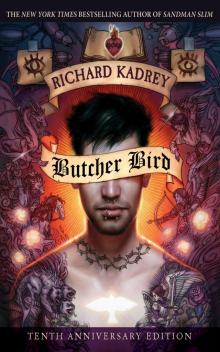 Butcher Bird
Butcher Bird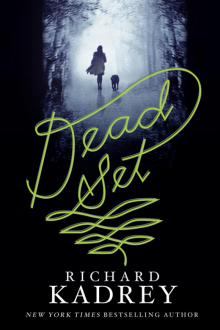 Dead Set
Dead Set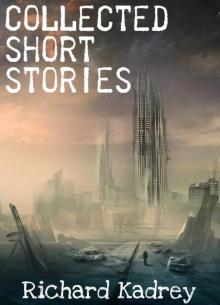 Devil in the Dollhouse
Devil in the Dollhouse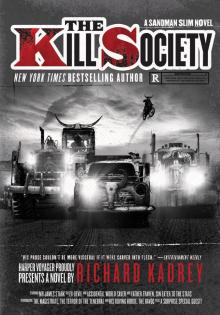 The Kill Society
The Kill Society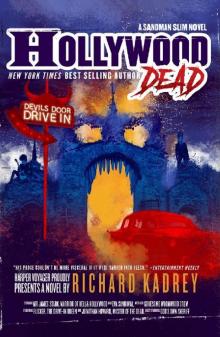 Hollywood Dead
Hollywood Dead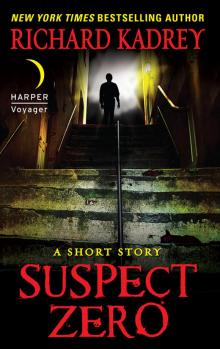 Suspect Zero
Suspect Zero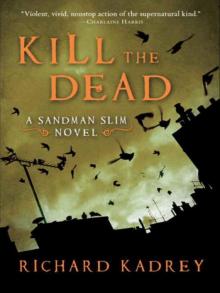 Kill the Dead
Kill the Dead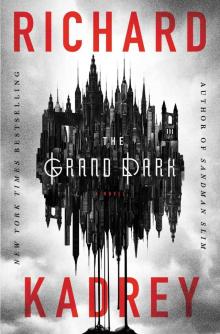 The Grand Dark
The Grand Dark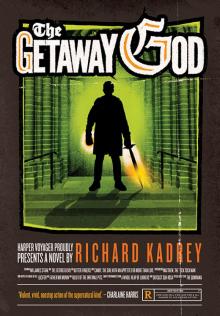 The Getaway God
The Getaway God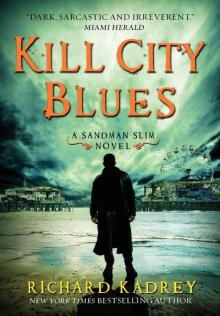 Kill City Blues
Kill City Blues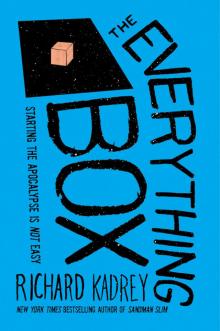 The Everything Box
The Everything Box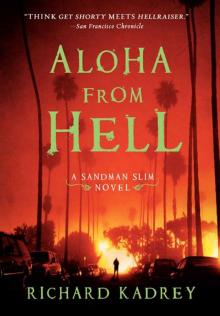 Aloha from Hell
Aloha from Hell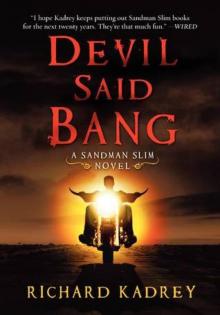 Devil Said Bang
Devil Said Bang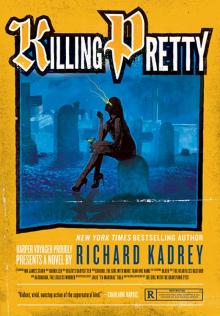 Killing Pretty
Killing Pretty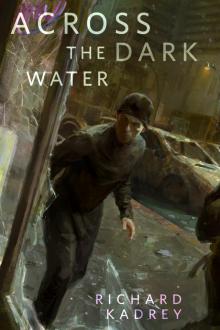 Across the Dark Water
Across the Dark Water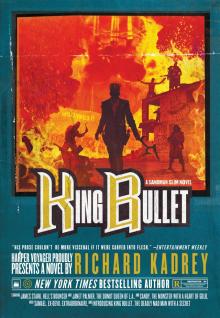 King Bullet
King Bullet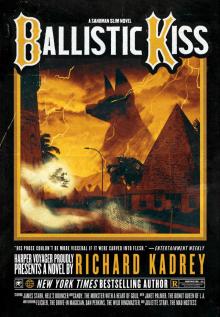 Ballistic Kiss
Ballistic Kiss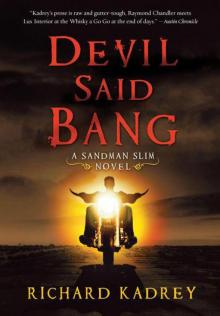 SS 04: Devil Said Bang: A Sandman Slim Novel
SS 04: Devil Said Bang: A Sandman Slim Novel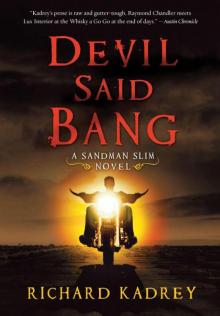 Devil Said Bang (Sandman Slim)
Devil Said Bang (Sandman Slim)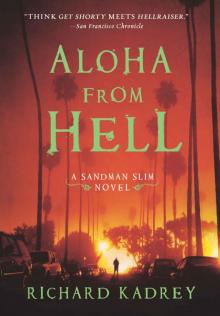 Aloha from Hell (Sandman Slim)
Aloha from Hell (Sandman Slim)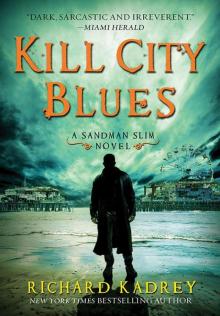 Kill City Blues: A Sandman Slim Novel
Kill City Blues: A Sandman Slim Novel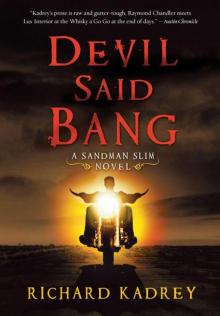 Devil Said Bang ss-4
Devil Said Bang ss-4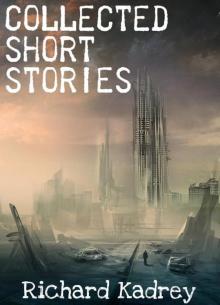 Collected Short Stories
Collected Short Stories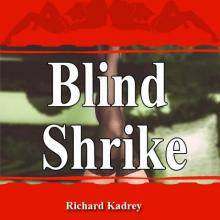 Blind Shrike
Blind Shrike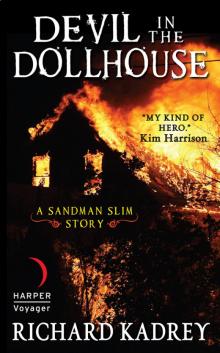 Devil in the Dollhouse: A Sandman Slim Story
Devil in the Dollhouse: A Sandman Slim Story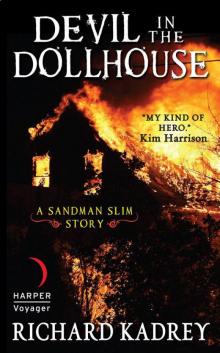 Devil in the Dollhouse (sandman slim)
Devil in the Dollhouse (sandman slim)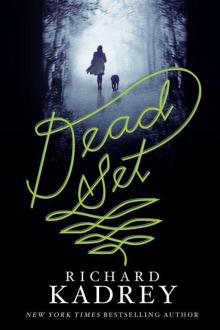 Dead Set: A Novel
Dead Set: A Novel